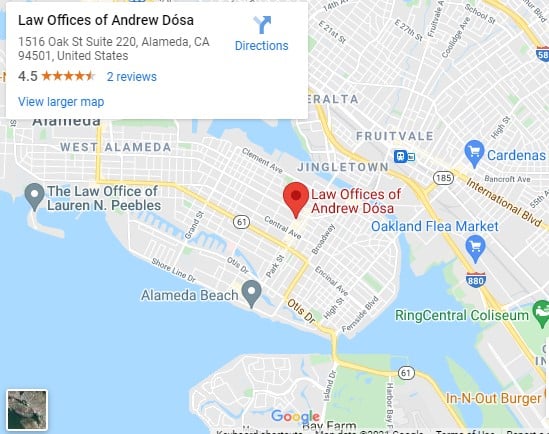By Andrew Alexander Dósa
This is the first of a series on Motions to Suppress. Several important Supreme Court decisions addressed the issue of illegally obtained evidence, that is, evidence obtained by police conduct violating the constitutional freedoms of and protections for a defendant. Imagine police arbitrarily or willfully invading your home and taking what they were not permitted to take. Was there a warrant, or probable cause–a reasonable basis to believe a crime was committed rather than a desire to harass a person? What was the legitimate basis for police action? And equally
important, what is the remedy if the police/government acted wrongly?
One option was to reprimand the police/government for the offensive conduct, and still allow use of the offensively obtained evidence. In that situation, what incentive would police have to stop the unconstitutional conduct? If police could beat evidence out of you and only get a judge to say: “stop it!”, but they could still use the evidence, why would they need to change
actions?
In Silverthorne Lumber Co. v. United States (1920), 251 U.S. 385, 40 S.Ct. 182, 64 L.Ed. 319, The U.S. Supreme Court established the Exclusionary Rule. All unconstitutionally obtained evidence would be barred–the prosecutor could not offer the evidence at trial and harm the defendant.
In his 1939 opinion in Nardone v. United States, Justice Felix Frankfurter coined the phrase “fruit of the poisonous tree”. If the evidential “tree” was tainted, so also was its “fruit.” There are exceptions to the Rule. Evidence can be admitted in court 1) if it was discovered from a source independent of the illegal government activity; 2) its discovery was inevitable; or, 3) if there is a lack of connection between the illegal activity and the discovery of the evidence.
This first article will include a standard notice for a motion we drafted in a DUI case. In following articles, I will include arguments employed in other types of cases.
If you have any questions about criminal law, please do not hesitate to contact my office (by email: adosa@dosalaw.com, or phone, 510-865-1600, the official office line, or cell, 510-333-4564). Let me know you have read this article. I welcome any thoughts or questions.
NOTICE OF MOTION AND MOTION TO SUPPRESS EVIDENCE (PC§1538.5)
TO: THE DISTRICT ATTORNEY OF THE COUNTY OF SANTA CLARA AND TO THE
CLERK OF THE ABOVE ENTITLED COURT:
PLEASE TAKE NOTICE that on April 26, 2021 at 1:30 p.m. or as soon thereafter as the matter may be heard in Department of the above-entitled court, defendant will move this Court, pursuant to Penal Code §1538.5, to suppress all tangible and intangible evidence and observations and fruits thereof, related to an illegal search, seizure, and arrest by officers of the California Highway Patrol on or about July 3, 2020. The defendant will specifically move to
suppress any and all evidence found in Mr. Smith’s car, or on the person of Mr. Smith on July 3, 2020, all the observations and tests and findings of the CHP Officers, and all the statements and admissions/confessions made by Mr. Smith, all related to the stop and arrest of defendant for alleged violations of Vehicle Code Sections 23152(a) and 23152(b).
This motion will be based on this notice and motion, the memorandum of points and authorities, the United States and California Constitutions, the California Penal Code, and the Vehicle Code, the records and files of this matter, and upon such other and further oral and or documentary evidence as may be presented at the hearing on the motion, and is based on the grounds that Mr. Smith was illegally stopped and therefore illegally arrested. Thus, any and all corresponding observations made after the fact and any and all statements/admissions/confessions of defendant are fruits of the poisonous tree and are inadmissible for purposes of prosecution; thus, the prosecution will be left without evidence against defendant. https://drlauryn.com/
In installment 2, we will include the introductory legal authorities for the motion.
Consult a California Criminal Defense Attorney
Do you have any concerns that an experienced criminal defense attorney in Alameda, CA can help you with? Consult our law firm today!





